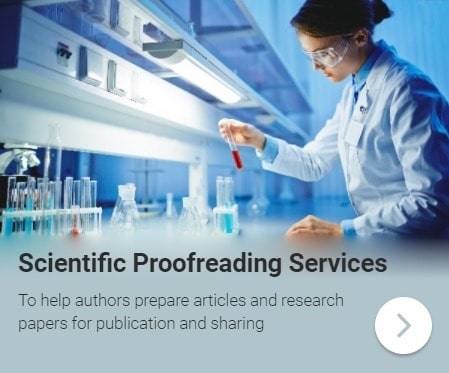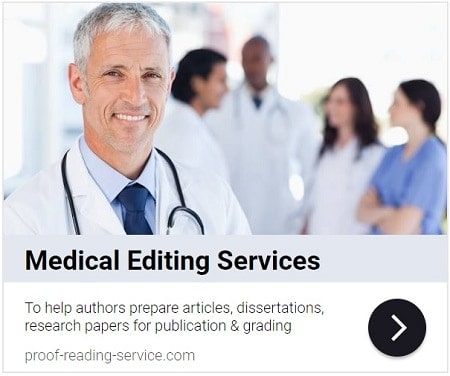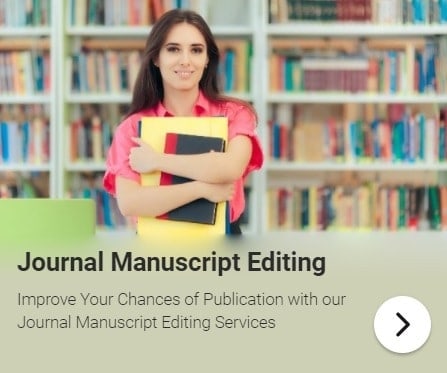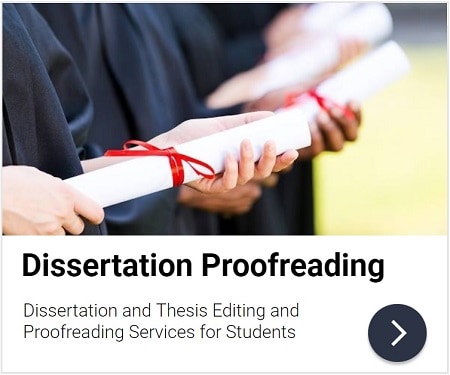3.6 Revising the Proposal Draft
I have already outlined at the beginning of this chapter a procedure for submitting draft chapters of the proposal to your supervisor and other members of your thesis committee and then revising each of those chapters in response to the feedback you receive, so I concentrate here on final revisions of the proposal as a whole. Once you have all the separately revised chapters for your proposal in place and have added the extra parts discussed in Section 3.5, you will want to proofread everything carefully and make any final corrections before passing the whole document along to your supervisor. It is unlikely that he or she will ask for any major revisions at this point, though not impossible, so do leave yourself some time before the proposal meeting just in case final changes prove to be more time-consuming than you anticipated. It is also unlikely that other members of your committee will want to read and comment on the proposal again prior to the meeting, but again, not impossible, so do keep that in mind when scheduling the meeting.
All members of your committee will, however, need to be provided with a clean and finished copy of your proposal well before the meeting: two weeks is a standard amount of time to allow for reading and feedback on any piece of writing you submit to your committee members and is usually sufficient time for them to read your proposal before the meeting as well, but do check university and department regulations in case a longer period is required and be sure to allow for it. It is also extremely important at this point that you have an opportunity to confirm with your department and supervisor exactly what is required of you at the proposal meeting and that you take the time between submitting your proposal and the meeting itself to prepare yourself both carefully and thoroughly.
3.7 Writing the Proposal Presentation and Anticipating Questions
Although exactly what is required of a doctoral candidate at the proposal meeting differs depending on the university, discipline, department, thesis committee and individual supervisor – your supervisor, for example, may take the leading role in the meeting or he or she may want you to take the leading role – the student is usually required to give a short presentation on the proposal and to be prepared to answer questions about both the proposal and the thesis that will develop from it. The presentation is usually quite brief, but it varies considerably among universities, departments and disciplines, so do look into what your presentation should contain and how formal and long it should be. Your supervisor may ask, for instance, that you give the presentation without reading from a written version or consulting notes, and even if this is not required, it is a good idea to keep the atmosphere somewhat informal by doing so. This does not mean, however, that you should not prepare your presentation very carefully either in a formal written version of what you plan to say or in clear and organised notes that you can resort to if necessary. In fact, writing your presentation is an excellent way to work through your thoughts and plant them firmly in your memory.
In most cases, the presentation should essentially be a summary of your proposal, so it need not contain anything beyond what you have already written more formally and thoroughly in the chapters and other material you have submitted prior to the meeting, but it needs to cover the same ground in much less detail and space, so it should focus on the main points. Depending on the precise content of your proposal, your presentation should certainly describe the topic, problem or phenomenon you are investigating, outline your aims and objectives, mention the most important of your research questions and hypotheses, explain the most significant discoveries of the literature review, indicate how your thesis will relate to existing scholarship, describe the methodology you intend to use and both emphasise its strengths and mention its limitations. You may also want or need to say something preliminary about what you expect your results and discussion chapters (or sections) to be like and, in a more general way, to voice your opinion about the significance of your research as a whole. Commenting on your timeline and your plans for the completion of the thesis is also a good idea, and can often lead to a discussion that resolves any potential problems with your schedule and clarifies any administrative procedures with which you may not be familiar.
Once you have given your presentation, you should be prepared to answer questions on your research and both the proposal and the thesis you envision. Some of these will predictably arise from your presentation, but it can also be useful to anticipate what your different committee members might ask. You have seen their responses to your writing by this point, so focus on concepts, areas, methods and problems that they have already flagged, and focus, too, on aspects of your work that trouble you. This can be rather difficult, of course, because it involves self-criticism, and for that, a little objectivity helps. Set your drafted presentation aside for a while – a few days or a week if you can – and then read both the proposal and the presentation again.
Making notes on anything you find problematic, confusing, potentially illogical or ethically questionable as you critically read your own work will help you anticipate questions, defend your choices and prepare you for a fresh beginning when you turn to writing the thesis itself once the proposal meeting is over. In my experience, some questions can be anticipated, some come from out of the blue (these are tricky but usually incredibly helpful in the long run – ‘I hadn’t thought of that, but I am now’ is a good fallback response if you cannot find anything brilliant to say on the spot) and some that are anticipated with trepidation never come at all; fortunately, these last tend to be the most difficult ones you imagined, because, as I have emphasised above, you know your research better than anyone else does.
You are likely to get practical questions as well, which will help resolve key issues such as the competence of your written English, the appropriate referencing style to be used (if this still has not been determined or if there are problems with the system you have used) and the feasibility of your timeline. Although it is more common in final examinations of theses than in proposal meetings, you might be asked about typing and spelling errors, so if you find a significant number of these as you reread your proposal before the meeting, do prepare a list to present either in your presentation to forestall the question or as a response when it comes. Be as accommodating as possible throughout the meeting and remember to show your appreciation and respect for the ideas of your committee members, even when you do not agree with them, and to explain your thinking clearly and calmly when you feel the need to defend your ideas and procedures.
3.8 Taking Notes and Resolving Problems before Moving On
Although it can be difficult to attend to what everyone is saying in your proposal meeting, sound intelligent yourself and take notes simultaneously, you should try to record as much as you can about what is discussed, especially any required changes for moving on to the next stage and any decisions about dates, styles and methods. As soon as possible, write up your notes and anything else important that you remember from the meeting, emphasising what must be done at this point, and share your report with your supervisor (who will very likely remember additional details and have helpful comments about your performance in the meeting). This ensures that you and your supervisor are on the same page, so to speak, and also provides an opportunity to discuss the next stages in the thesis process – both the research and the writing that lies ahead.
Once you and your supervisor have agreed on what was covered in the meeting and its implications for your future progress, revise your report and circulate it among all your committee members, inviting commentary when you do. There are rarely any comments beyond ‘looks good’ at this point, but you should deal with anything that does arise at once and be sure that any revisions to the report are sent to all members again. The next part of the road to doctoral success is the longest and the roughest, often presenting a variety of steep hills and tricky corners, so you need to be sure that your guides know exactly where you are and where you are planning to go.
PRS Tip: Maintaining your own voice and your own route for your thesis can be particularly difficult when dealing with the comments of several committee members. It is essential that all these comments be taken seriously and that you make the required revisions and adjustments to your writing, but it is equally vital to keep your own plans and goals clearly in view and to continue working steadily towards them. Established scholars can at times mention rather casually the need to include concepts and traditions that have taken them years to understand and write about effectively, and although all such advice should be followed when relevant and helpful, there are instances in which half your research time could be consumed pursuing a single suggestion, while using the concept without extensive research would sound inappropriate or naïve. For this reason, deciding what to pursue and what to set aside among the advice you receive, as well as how to incorporate suggestions into your own writing can be challenging. Sometimes an outside perspective can be enormously helpful, and while the proofreaders at PRS cannot claim to be experts in every field and topic, they are accustomed to reading academic and scientific argumentation of all kinds in a professional, critical and objective way. They can therefore let you know when logical transitions and intellectual connections are unclear and where your argument or your voice may seem inconsistent or ineffective. These details are, after all, essential aspects of writing clear and correct scholarly English, which is among the specialties of PRS proofreaders, who can also check your proposal materials with an eye to precision and consistency in your use of references, headings, punctuation, special fonts and any number of other elements. Establishing sound practices that meet university requirements (which can be sent to PRS along with your document) for these aspects of your writing at the proposal stage will empower you to deal with them much more efficiently (with far fewer revisions) as you move on to the writing of the thesis itself.
Why PhD Success?
To Graduate Successfully
This article is part of a book called "PhD Success" which focuses on the writing process of a phd thesis, with its aim being to provide sound practices and principles for reporting and formatting in text the methods, results and discussion of even the most innovative and unique research in ways that are clear, correct, professional and persuasive.
The assumption of the book is that the doctoral candidate reading it is both eager to write and more than capable of doing so, but nonetheless requires information and guidance on exactly what he or she should be writing and how best to approach the task. The basic components of a doctoral thesis are outlined and described, as are the elements of complete and accurate scholarly references, and detailed descriptions of writing practices are clarified through the use of numerous examples.
The basic components of a doctoral thesis are outlined and described, as are the elements of complete and accurate scholarly references, and detailed descriptions of writing practices are clarified through the use of numerous examples. PhD Success provides guidance for students familiar with English and the procedures of English universities, but it also acknowledges that many theses in the English language are now written by candidates whose first language is not English, so it carefully explains the scholarly styles, conventions and standards expected of a successful doctoral thesis in the English language.
Individual chapters of this book address reflective and critical writing early in the thesis process; working successfully with thesis supervisors and benefiting from commentary and criticism; drafting and revising effective thesis chapters and developing an academic or scientific argument; writing and formatting a thesis in clear and correct scholarly English; citing, quoting and documenting sources thoroughly and accurately; and preparing for and excelling in thesis meetings and examinations.
Completing a doctoral thesis successfully requires long and penetrating thought, intellectual rigour and creativity, original research and sound methods (whether established or innovative), precision in recording detail and a wide-ranging thoroughness, as much perseverance and mental toughness as insight and brilliance, and, no matter how many helpful writing guides are consulted, a great deal of hard work over a significant period of time. Writing a thesis can be an enjoyable as well as a challenging experience, however, and even if it is not always so, the personal and professional rewards of achieving such an enormous goal are considerable, as all doctoral candidates no doubt realise, and will last a great deal longer than any problems that may be encountered during the process.
Interested in Proofreading your PhD Thesis? Get in Touch with us
If you are interested in proofreading your PhD thesis or dissertation, please explore our expert dissertation proofreading services.


Services
PhD Dissertation Proofreading
Our PhD dissertation proofreaders specialise in improving grammar, sentence structure, citations, references, clarity, logical flow and readability.
Master’s Dissertation Proofreading
To avoid failure and its consequences, send your dissertation to our master’s dissertation proofreading service.
Scientific Dissertation Proofreading
Our scientific proofreaders specialise in correcting and perfecting the language, editorial styles and references across all science fields.
Headquarters
Dissertation-Proofreading.com
Allia Future Business Centre
The Guildhall
Market Square
Cambridge
CB2 3QJ
United Kingdom
More Expert Proofreading Services
Journal Editing
Journal article editing services
PhD Thesis Editing
PhD thesis editing services














